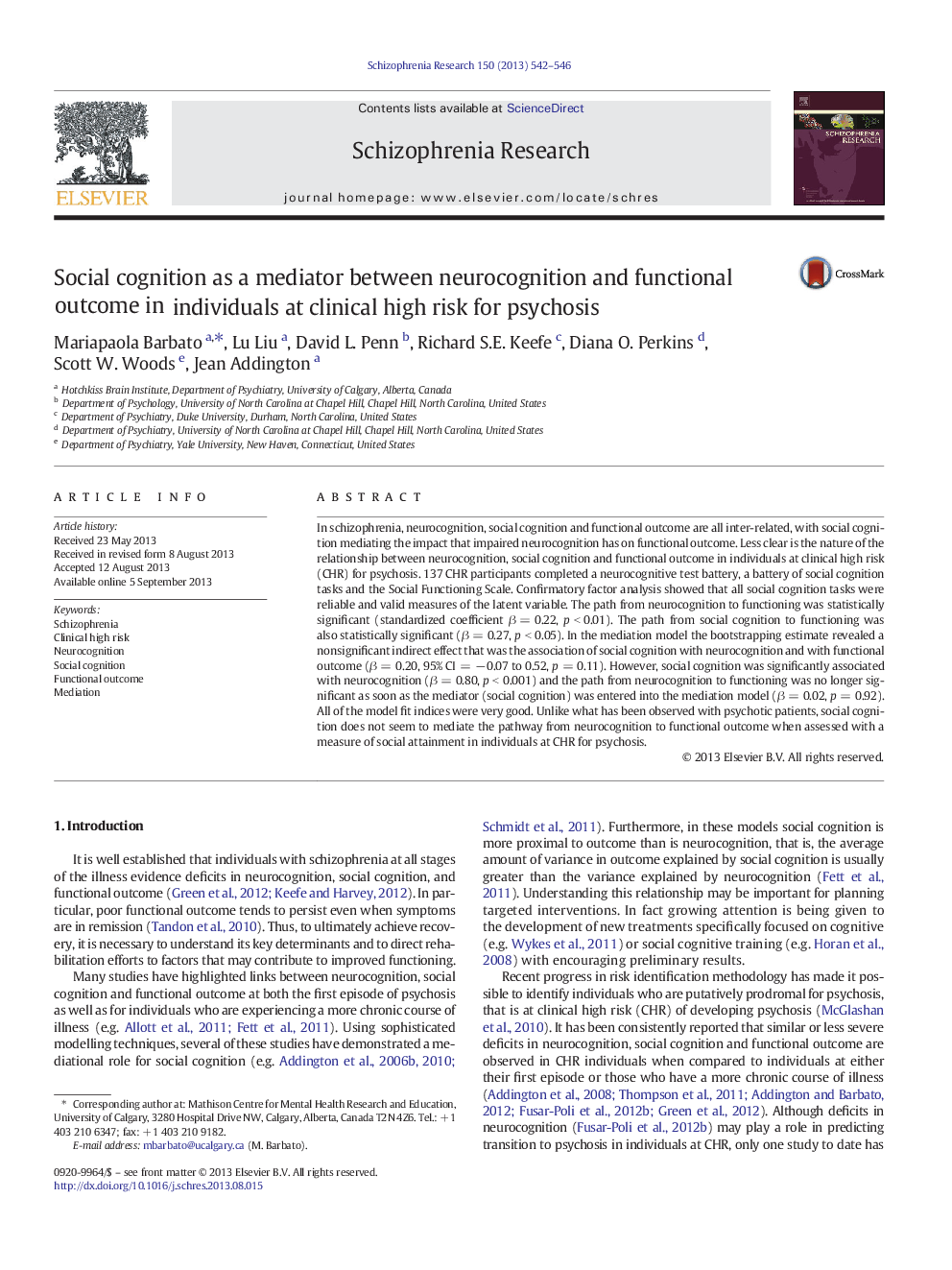ترجمه فارسی عنوان مقاله
شناخت اجتماعی به عنوان میانجی بین شناخت عصبی و نتیجه عملکرد در افراد در معرض خطر بالای بالینی برای روان پریشی
عنوان انگلیسی
Social cognition as a mediator between neurocognition and functional outcome in individuals at clinical high risk for psychosis
| کد مقاله | سال انتشار | تعداد صفحات مقاله انگلیسی |
|---|---|---|
| 78338 | 2013 | 5 صفحه PDF |
منبع

Publisher : Elsevier - Science Direct (الزویر - ساینس دایرکت)
Journal : Schizophrenia Research, Volume 150, Issues 2–3, November 2013, Pages 542–546
ترجمه کلمات کلیدی
اسکیزوفرنی؛ در معرض خطر بالینی؛ شناخت عصبی؛ شناخت اجتماعی؛ نتیجه کاربردی؛ میانجی گری
کلمات کلیدی انگلیسی
Schizophrenia; Clinical high risk; Neurocognition; Social cognition; Functional outcome; Mediation

